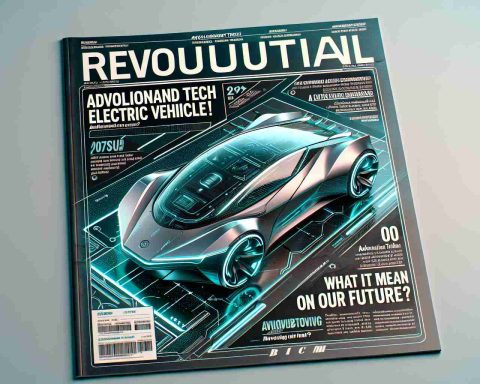Top Automotive Brands Revealed
In a recent evaluation by Consumer Reports, Subaru, Lexus, and Toyota have established themselves as the most reliable automotive brands in the United States, all hailing from Japan. The rankings illuminate a contrasting picture, with GMC, Cadillac, and Rivian taking the bottom spots for reliability.
With the average new car price soaring to $48,000, reliability becomes crucial to avoid costly repairs and inconveniences. Consumers are urged to refer to reputable reliability rankings when selecting their vehicles to ensure a wise investment.
The senior director of auto testing at Consumer Reports emphasized the importance of examining specific model reliability, as notable variations can exist even within high-ranking brands. Additionally, some Japanese manufacturers, including Toyota and Subaru, are innovating by promoting bioethanol initiatives.
Subaru’s standout performance included seven models, with the Forester and Impreza leading the pack, while Lexus and Toyota maintained competitive positions despite some new models receiving subpar reliability scores. Interestingly, Subaru’s Solterra EV shared a challenging fate with Toyota’s bZ4X, highlighting the intricacies of new technology.
In contrast, Tesla finds itself in a lukewarm position, ranked only averagely among competitors. U.S. models like the Ford Mustang and Chevrolet Trailblazer also managed to claim above-average reliability scores, showcasing a mixed bag for American brands. This reliability ranking serves as a critical resource for prospective car buyers.
Unveiling the Most Reliable Cars of 2023: A Deep Dive into Automotive Brand Rankings
In the latest assessment by Consumer Reports, Subaru, Lexus, and Toyota have emerged as the pinnacle of reliability among automotive brands in the United States, with all three originating from Japan. This article explores their features, innovation trends, and the competitive landscape of car reliability, along with insights into the implications for consumers.
Key Features of Reliable Brands
1. Subaru: Known for its all-wheel-drive technology, Subaru has long been a mainstay in reliability rankings. Notably, the Forester and Impreza models set a benchmark for performance. These vehicles are equipped with advanced safety features and consistently high owner satisfaction ratings.
2. Lexus: As Toyota’s luxury division, Lexus focuses on comfort, advanced technology, and robust performance. Its hybrid models, such as the Lexus RX Hybrid, are particularly noteworthy for their efficiency and reliability.
3. Toyota: Renowned for producing durable, dependable vehicles, Toyota continues to innovate with sustainable initiatives, including a strong push for bioethanol power. Models like the Camry and Corolla remain highly appealing to consumers who prioritize long-term investment.
Trends in Reliability Ratings
With an average new car price now at $48,000, reliability has never been more critical. Drivers are increasingly seeking vehicles that promise fewer repairs and greater longevity. This year’s rankings reflect a growing trend of hybrid and electric vehicles exhibiting varied reliability metrics, with Subaru’s Solterra EV and Toyota’s bZ4X notably underperforming compared to expectations, shedding light on the reliability complexities of emerging technologies.
Market Analysis: U.S. Brands
Despite the global dominance of Japanese manufacturers, some U.S. brands are successfully breaking through. The Ford Mustang and Chevrolet Trailblazer have received above-average reliability ratings, showcasing a potential shift toward more dependable options from American automakers. However, brands like GMC, Cadillac, and Rivian landed at the bottom of the reliability rankings, causing concern among potential buyers who value dependability.
Pros and Cons of Top Brands
# Subaru
Pros: Exceptional all-weather handling, high safety ratings, trusted warranties.
Cons: Limited luxury features, average fuel efficiency for some models.
# Lexus
Pros: Luxurious interiors, advanced technology, strong resale value.
Cons: Higher price point, limited options in electric vehicles.
# Toyota
Pros: Wide range of models, strong fuel economy, consistent reliability.
Cons: Conservative styling, certain models may lack modern tech features.
Innovations in the Automotive Industry
The automotive industry is witnessing a crucial shift toward sustainability, with brands like Toyota and Subaru leading bioethanol initiatives. This focus not only helps in reducing carbon emissions but also caters to eco-conscious consumers. Innovations such as hybrid powertrains and advanced safety systems are becoming standard, transforming how reliability is defined in newer models.
Conclusion
The findings from Consumer Reports highlight the need for prospective car buyers to prioritize reliability in their purchasing decisions. With brands like Subaru, Lexus, and Toyota at the forefront, consumers can make informed choices that align with their values and needs, ensuring a wiser investment in an era of rising vehicle prices and evolving automotive technologies.
For more insights on automotive trends and updates, visit Consumer Reports.








